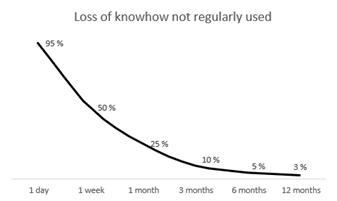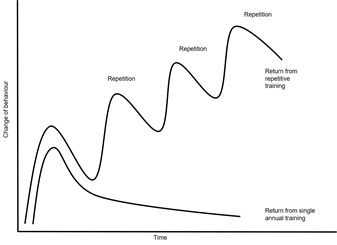Crisis Management: Do you think you are prepared for the next crisis?
 ‹ Tilbake til artikler
‹ Tilbake til artikler
Before you answer, consider this. Most organisations have faced a crisis caused by Covid-19 in the last year. Experienced and first-time crisis managers have witnessed that business-as-usual was thrown out the window and replaced with something very chaotic, stressful and scary at times. Hopefully, you that have been part of a crisis management team have landed on your feet, although with an experience few will want to face again. However, realistically, you will.
Fast forward a year after Covid-19 gained momentum, you may have done the following:
- Revised the risk assessment and put one containing the word ‘pandemic’ higher up on the list of potential scenarios to prepare for
- Nominated or formed a position within a suitable function or department responsible for maintaining all processes, playbooks and tools required to be better prepared
- Created or updated your crisis management plans, manuals and other relevant material
- Ensured a physical war room with all the tools required, and the virtual version of it
- Hired some crisis management resources to help get one or all the above to a level of internal and external stakeholders’ satisfaction
Ticked all the boxes? Great. However, if you stop there, chances are that you will make the same mistakes as you did when you faced the grim personality of Covid-19. Why? Because managing a crisis requires a mindset and set of abilities different to the ones you use when ‘things are normal’. And, because new knowledge and experience gained during a crisis will gradually fade away. Why? Because of its rarity. (said with optimism and hope). Gaining new skills and making them part of your DNA is simply not done in one attempt, no matter how dramatic the experience has been.
So, what can you do? Much research has been done on how to make new knowledge stick. In the process of taking the business as usual hat of and replacing this with a crisis management hat, you need to quickly change mindset to manage a crisis effectively. In other words, you need to change one set of behavioural traits with another.
So how do you build required capabilities in a way that sticks? You can arrange talks and meetings to discuss crisis management as much as you want, but this will not suffice. Why? People on average only remember 3% of what they were taught in a ‘classroom’ 12 months after it took place.

What then is a better approach? One simple answer is training, training and more training. In many cases combined with a set of contextual events in between. Why? Because in repetitive training, individuals learn and remember more effectively, especially when they can process actual events, discuss ideas, talk about things, reflect and then apply what they have learned in the next training.

This approach is the essence of how organisations can strengthen their crisis management capabilities and competence.
So, how to structure it?
Assuming you have ticked all the boxes described earlier, and that the scenarios you want to prepare for are updated and complete, you can improve your crisis management capabilities through a combination of five drivers:
1. Role profiling
2. Exercises
3. Evaluation
4. One-to-one coaching
5. Focused learning
1. Role profiling
Organisations come in various forms and sizes and may or may not have the luxury of finding a suitable match in terms of skills and capabilities required for a role in the crisis management team. By doing a role profiling exercise, you can identify strengths and weaknesses of each member in the team. You can then assess these through observation during an exercise and turn areas of improvement to training objectives.
2. Exercises
An exercise is essentially practical training based on a scenario or an event that the crisis management team must solve by using their skills and the tools designed for crisis management. 4-6 exercises per year will create the necessary effect as it enables each team member to internalise the skills, capabilities and thus behaviours required to be a successful individual and team member. Unless there is an absolute need for an in-field or a full day session, 60-90 minutes duration works well for a discussion-based exercise as the value will drop if you continue beyond this. If you plan and let the team be prepared for an exercise, this allows you to block calendars well ahead of the event and prevent last-minute dropouts because of pressing business matters. Unless testing of your mobilisation routine is part of the exercise objective, do not worry about letting the team know that there will be a crisis exercise in advance. Research has shown that by taking away the surprising element of a sudden, not planned exercise, the outcome is improved skills as it allows the team members to prepare and be in a state of mind that enables them to internalise more of the experience gained during the event. And even more so if you do a follow up evaluation after the exercise.
3. Evaluation
An evaluation immediately after the exercise will normally give you good input on the performance and if the team met agreed goals or not. But do not stop there. Allow the adrenalin to normalise and some time for reflection before you follow up. Arrange a team discussion a day or two after to capture their impression of how they did. If you have key learning objectives for the exercise, be sure to focus on these points and ask the team to self-evaluate based on those before you evaluate. Use identified gaps and weaknesses in activities that follow to ensure continuous improvement. The following activity can either be the next exercise, or in a more thorough and personal format, such as one-to-one coaching
4. One-to-one coaching
In between exercises, it can sometimes be useful to allow for one-to-one sessions with a coach and the members of your crisis team. Why? For several reasons. One being that each member in full confidence can discuss topics that many find difficult to share with colleagues. Just having the chance to talk about it can often help in clarifying misunderstandings and eliminate potential conflicts between members. It will also help tuning in on key learning points, what specific skills and capabilities each should work on and turn these into personal goals and objectives for the next exercise. 2-4 times per year is a good starting point, the exact number depending on how well the person performed as a team member and individual in the training sessions. And if the performance during the exercise is far off, consider making room for ‘topping up’ on specific topics, for example by applying focused learning.
5. Focused learning
The concept of focused learning is to create room for uninterrupted study time for up to 90 minutes. Here, the person can fully concentrate on a specific topic to gain necessary insight to perform in a new role with new responsibilities. The key word here is uninterrupted. Why? Because distractions will cause up to 15 minutes calibration time to get back to the deep concentration necessary to get under the skin of the topic studied.
Focused learning is normally not required for your technical resources as these will know their trade inside out. But, particularly for smaller organisation, it will be useful for individuals with responsibilities different to what they do in their day to day work.
Summary
Setting up a programme with these elements will bring you a lot closer to effectively shift to the behavioural mindset required to manage crisis well. What to include depends on the size and maturity of the organisation, each crisis management team members’ experience, competence and capabilities in managing crisis. A good starting point will be to put regular crisis management training on your agenda.
And then take it from there.

Morten Overgaard
Morten Overgård is a Director at PwC Norway, Strategy & Operations, and is a member of PwC’s Global Crisis Leadership Network. He has more than 20 years of experience in Operations Management and has first-hand experience in crisis leadership management. He is an experienced coach and trainer, has supported organisations in building crisis management frameworks, facilitated crisis management exercises, and coached leaders, managers and experts to help them develop a crisis management mindset and essential skill sets.
Legg igjen en kommentar